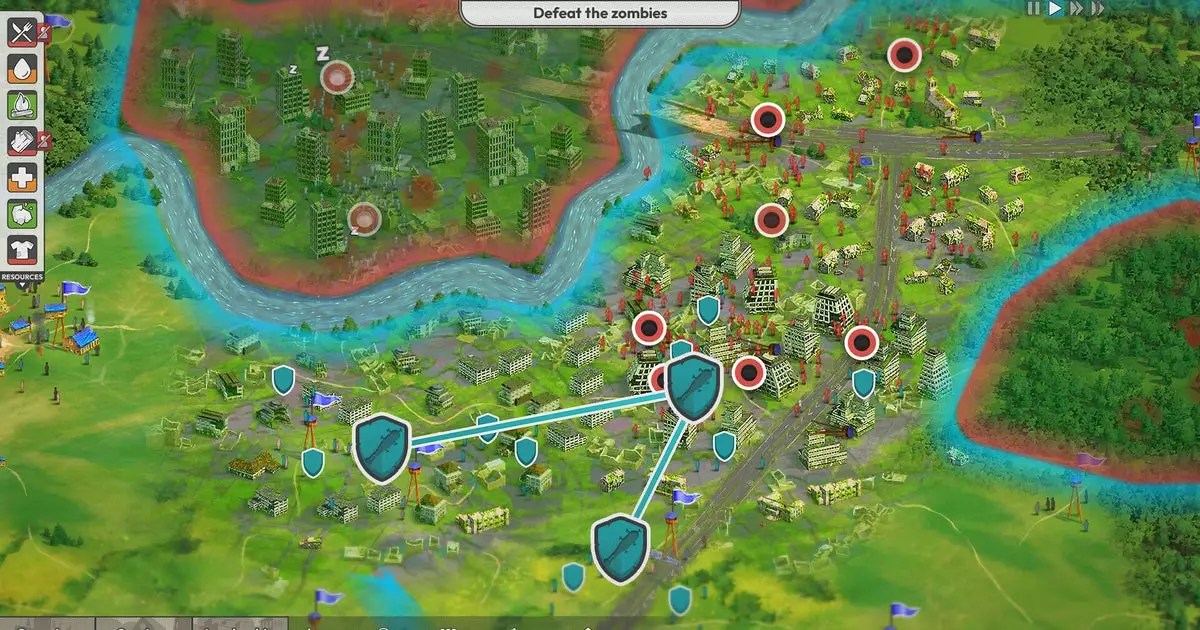The gaming landscape has consistently evolved with the complexities of human experiences and societal circumstances. Plague Inc, developed by Ndemic Creations, has become a notorious hallmark in the strategy genre since its inception in 2012. Players were given the unique opportunity to act as the architects of global pandemonium, nurturing a disease through intricate mechanics and strategies. The emergence of the COVID-19 pandemic thrust Plague Inc back into the limelight, allowing a generation to model their anxieties through a digital lens. However, Ndemic’s journey doesn’t stop at delivering a darkly cerebral plague simulation; it now aims to pivot towards regeneration with their upcoming title, After Inc: Revival. This game ventures into a novel conceptual territory—rebuilding society in the throes of a zombie apocalypse, thereby shifting from destruction to reconstruction.
Set in a hauntingly beautiful post-apocalyptic version of the United Kingdom, After Inc presents itself as a city-building strategy game infused with elements of a 4X game. Here, players are tasked with the noble endeavor of revitalizing a world ripped apart by chaos, while simultaneously grappling with the remnants of societal collapse. The game’s aesthetics—a juxtaposition of cozy villages against eerily decaying urban landscapes—may resonate with players who long for a return to normalcy, but also raises profound questions about the interpretations of such a normalcy in the wake of a global crisis like COVID-19.
The developers of After Inc have adopted a strategy that leans into the psychological aspects of rebuilding while inviting players to make morally ambiguous choices. As the game promises “democracy or authoritarianism,” it teases broader reflections on leadership styles in chaotic environments. The stark choices presented—whether to treat children as luxuries or resources—conjure up ethical dilemmas reminiscent of those faced by societies in crisis. However, the comparison to Frostpunk, which expertly navigates such themes, remains to be evaluated within the context of After Inc’s gameplay style.
Gameplay Mechanics: Strengths and Concerns
With the impending release set for early access in 2025, After Inc’s foundation relies heavily on its key features. Players will scavenge through the ruins of previous civilizations, harvest resources, and expand their settlements. The necessity of making tough decisions should ideally be a deep well of narrative richness. Yet, it raises concerns regarding the potential trivialization of weighty ethical issues. Also, the portrayal of marginalized or mythologized groups—like zombies—poses a risk of oversimplifying complex real-world conversations about fear, survival, and human rights in the substance of gameplay.
The game advertises “ultra-realistic modeling of Zombie behavior,” but the implications of drawing real-life parallels in a fantastical setting warrant scrutiny. Ndemic’s humor—asserting that this is not a commentary on any particular real-world crisis—also invites skepticism. After Inc walks a precarious line; addressing real societal anxieties within a fantastical plot could prove cathartic or problematic, depending upon player engagement and context.
As players engage with this new title, one must question the implications of reconstructing society post-crisis. After Inc may inadvertently gloss over the complex and often painful realities of an ongoing pandemic. By laughing off the potential fears surrounding a “real-life zombie apocalypse,” it risks undermining the tangible struggles of numerous individuals living through the long shadows cast by COVID-19. The use of light-hearted framing around a subject suffused with contemporary unease could be perceived as tone-deaf.
The potential for narrative algorithms to respond to player decisions is a promising idea, suggesting depth and variability in storytelling. However, the true measure of After Inc’s narrative precision will only reveal itself once players step into its post-apocalyptic world. Will it merely echo the polite rhetoric surrounding a hoped-for “return to normal,” or will it challenge existing narratives about rebuilding amidst ongoing crises—and ultimately provide subtle commentary on resilience, community, and adaptation?
After Inc: Revival emerges not just as a game seeking to overturn the previous nihilism of Plague Inc, but as a reflection of a world still wrestling with its trauma. While it poses the exciting challenge of development from ruin, the dialogue it promotes around ethical decision-making and societal recovery remains fraught with tension, requiring players to confront more than just zombies lurking in the shadows of their digital settlements.


Leave a Reply